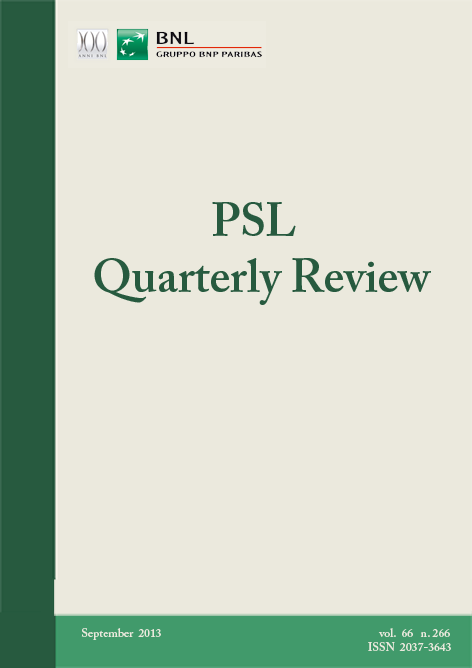Dualism in economic growth
DOI:
https://doi.org/10.13133/2037-3643/10481Keywords:
growth, dualism, developmentAbstract
Article originally published in Banca Nazionale del Lavoro Quarterly Review, vol. 12 n. 51, December 1959, pp. 386-434. The article examines a previous contribution to the problems of economic dualism by Vera Lutz, which represents a new and independent approach. The author first moves some criticisms to Lutz’ diagnosis of dualism, trying to show that the emphasis laid by her on the wage level as a cause of dualism is not justified and points out some flaws in the mechanism through which the wage level should affect employment. In the main part of the analysis, however, the author suggests an alternative and more general explanation of dualism in economic growth, from which emerges an implicit refutation of any therapy founded exclusively on capital accumulation and on the constancy of wages; according to the model, under certain conditions dualism can arise independently of the behaviour of wages. In conclusion, the author argues that dualism is not simply an accident in the economic history of some countries, but an immanent - though possibly avoidable with adequate policy measures - obstacle for economies which are now at the initial stages of development.
JEL Codes: O11, O41, B31
Downloads
How to Cite
Issue
Section
License



